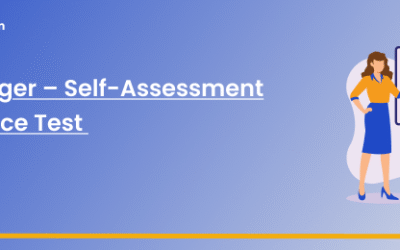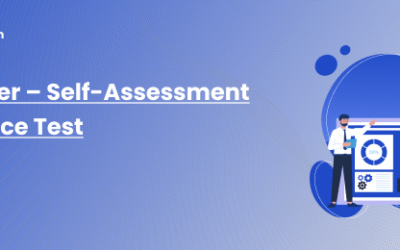Table of Contents
In the bustling world of dining, the role of a restaurant manager is both dynamic and essential. These professionals juggle a variety of tasks, from managing staff to ensuring customer satisfaction. What exactly does a restaurant manager do? Essentially, they oversee daily operations and are responsible for maintaining a smooth flow of service and quality.
Whether you’re considering a career in restaurant management or simply curious about what goes on behind the scenes, understanding their key responsibilities sheds light on the complexities of this role. From handling budgets to training staff, each duty plays a part in the overall success of the establishment.
You’ll discover how restaurant managers not only influence operations but also the dining experience for patrons. Join us as we unpack the multifaceted responsibilities that define a restaurant manager’s day-to-day life, providing insight into how they contribute to a thriving restaurant environment.
For additional context, check out What Is Restaurant Management? or watch this YouTube video on restaurant manager roles for a more visual overview.
Core Responsibilities of a Restaurant Manager
A restaurant manager wears many hats, balancing various responsibilities to ensure a successful dining experience. From staff management to financial oversight, each task is crucial. Let’s break down these core responsibilities.
Staff Management
Effective staff management is paramount. A restaurant manager is in charge of hiring skilled workers who fit the restaurant’s culture. This involves creating clear job descriptions, conducting interviews, and selecting the right candidates. Once hired, the focus shifts to training. New staff must understand their roles, which helps in maintaining the restaurant’s standards. On-going training refreshes skills and keeps everyone aligned with operational goals.
Evaluating staff performance is essential too. Regular feedback helps staff grow and succeed. Managers may hold weekly one-on-one meetings, fostering open communication and addressing concerns. This built-in support system can dramatically enhance team dynamics.
Customer Service Standards
Maintaining high customer service standards is a cornerstone of restaurant management. Exceptional service keeps guests returning and can lead to positive reviews. A restaurant manager sets the tone for service excellence by leading by example. This includes greeting guests, resolving complaints promptly, and ensuring staff members are attentive.
Regular training sessions on customer service can empower staff to handle diverse situations. Ultimately, the goal is to create a welcoming atmosphere where each guest feels valued. Engaging with customers further helps in understanding their needs and expectations.
Financial Management
Financial acumen is vital for a restaurant manager. They oversee budgeting, ensuring the restaurant remains within financial limits while still delivering quality. This involves scrutinising costs and implementing effective cost control measures. Regular financial reporting keeps track of revenue, expenses, and profit margins.
Understanding pricing strategies and adjusting them based on market demand is crucial. Managers must also be savvy in dealing with suppliers to ensure cost-effective purchasing without compromising quality.
Inventory Management
Efficient inventory management can save money and reduce waste. Restaurant managers must ensure supplies are ordered timely to avoid shortages. Keeping a close watch on inventory levels helps prevent overstocking, which ties up capital and can lead to waste.
Implementing a tracking system can facilitate this process, allowing managers to easily see what items are in stock and what needs reordering. Regular stock takes also help maintain control and can signal when adjustments are needed.
Compliance and Safety
Health and safety must never be overlooked. Restaurant managers are responsible for ensuring compliance with local laws and regulations. This includes health inspections, food safety protocols, and labour laws.
Adopting strict cleaning and maintenance schedules keeps the environment safe for both staff and customers. Additionally, developing an emergency plan can prepare the restaurant for unexpected events, ensuring staff know what to do in an emergency.
For those interested in exploring more about the broader implications of restaurant management, visit What Is Hospitality Management?.
Leadership Skills Required for Restaurant Managers
When it comes to effective restaurant management, strong leadership skills can make all the difference. A restaurant manager must possess various capabilities to guide their team, maintain customer satisfaction, and ensure smooth operations. Here are some essential leadership skills that every restaurant manager should focus on.
Communication Skills
Clear and effective communication is vital in a restaurant. Managers need to convey expectations to staff and establish a rapport with customers. Whether it’s instructing kitchen staff, discussing menu items with servers, or resolving customer issues, communication should be straightforward and concise.
For example, regular team meetings help keep everyone informed and engaged. Encourage an open-door policy so staff feel comfortable sharing their thoughts. When staff know they can communicate with their supervisor, it fosters a more positive workplace. Strong communication also strengthens customer relationships, as attentive managers can respond to needs and feedback promptly.
Conflict Resolution
In any busy restaurant, conflicts may arise among staff or between customers and the establishment. Restaurant managers must be trained in conflict resolution techniques to address issues calmly and effectively.
Techniques such as active listening can help managers understand the root causes of disputes. Offering a safe space for staff to voice concerns can allow tensions to ease. For customer complaints, a fair and prompt resolution can turn a negative experience into a positive one. A manager’s ability to resolve conflicts not only enhances team dynamics but also strengthens customer loyalty.
Team Building
Creating a positive team environment is crucial for staff morale and productivity. A restaurant manager should focus on team-building strategies that foster collaboration and camaraderie.
Consider organising team-building activities, such as group outings or training sessions that promote teamwork. Regularly recognising and celebrating staff achievements boosts motivation. When employees feel valued, they are more likely to work together effectively, improving overall service quality.
Decision Making
The fast-paced restaurant setting often requires managers to make decisions quickly. Effective decision-making skills are essential in maintaining operations and addressing unexpected challenges.
Using past experiences and available data, managers can make informed choices in high-pressure situations. For instance, deciding on menu adjustments based on customer feedback is critical to staying relevant. Encouraging staff input can also lead to better decisions, as they are often closest to the day-to-day operations.
For more about leadership in different management contexts, check out What Is Senior Management?.
Operational Responsibilities
Restaurant managers play a pivotal role in ensuring the establishment runs smoothly. They handle various operational responsibilities that directly impact staff efficiency, customer satisfaction, and overall profitability. Understanding these tasks can provide deeper insight into the daily workings of a restaurant.
Scheduling and Shift Management
Creating effective staff schedules is essential for smooth restaurant operations. Managers need to balance staff availability with peak service times. A well-planned schedule ensures adequate coverage during busy periods while preventing overstaffing during quieter times.
Considerations when scheduling include:
- Staff Preferences: Understand the individual preferences of your employees to improve satisfaction and reduce turnover.
- Peak Hours: Identify the busiest service times and allocate more staff to handle the increased customer volume.
- Training Needs: Factor in training schedules for new hires or ongoing training sessions, ensuring that enough experienced staff members are present.
Using scheduling software can aid in creating efficient rosters, making it easier to track shifts and manage last-minute changes. This not only saves time but also helps maintain morale among staff by showing that their personal needs are acknowledged.
Menu Planning and Development
A restaurant manager plays a critical role in the creation and continuous improvement of the menu. Regularly updating the menu based on customer feedback keeps offerings fresh and appealing. This involves:
- Listening to Customers: Collect feedback through surveys or casual conversations to understand what dishes are popular or which need improvement.
- Experimenting with Flavours: Collaborate with chefs to test new recipes, keeping in mind current trends and customer preferences.
- Seasonal Adjustments: Incorporate seasonal ingredients to not only enhance flavours but also to manage costs effectively.
By actively engaging in menu planning, managers ensure that the restaurant stays relevant and competitive in the market, which can lead to increased customer loyalty.
Marketing and Promotions
Restaurant managers are vital in crafting and executing marketing strategies. They need to create promotions that entice customers, leading to increased patronage. Key responsibilities include:
- Promotional Events: Organising special events such as live music nights or themed dining experiences to attract a wider audience.
- Social Media Engagement: Actively managing social media profiles helps in building brand presence and engaging with customers.
- Collaborations: Partnering with local businesses or influencers can expand reach and attract new diners.
Effective marketing not only boosts sales but also enhances the restaurant’s image in the community. Knowing how to tap into local trends can make promotions more successful.
Performance Analysis
Analysing performance metrics is crucial for continuous improvement. Managers should regularly scrutinise various data points, such as:
- Sales Reports: Understanding daily, weekly, and monthly sales trends helps identify peak times and popular dishes.
- Customer Feedback: Analysing reviews on platforms like Google or TripAdvisor allows managers to gauge customer satisfaction and identify areas for enhancement.
- Staff Efficiency: Reviewing staff performance and productivity can highlight training needs or areas for better team dynamics.
Using this data, managers can make informed decisions on menu modifications, staffing needs, and promotional strategies, ultimately driving the restaurant towards sustained success. For more insights on restaurant operations, visit What Is Cafe Management?.
Professional Development as a Restaurant Manager
Professional development is key for restaurant managers seeking to enhance their skills and elevate their establishments. Continuous learning not only benefits the manager but also improves the overall dining experience. This section will explore certifications, the importance of networking, and staying updated with industry trends.
Certification and Training Programs
Investing in formal certifications and training programs can significantly boost a restaurant manager’s skill set. These credentials not only contribute to personal growth but can also enhance restaurant performance. Certifications to consider include:
- ServSafe Certification: Focuses on food safety and sanitation, essential for maintaining health standards.
- Certified Restaurant Manager (CRM): Covers various management topics, from finance to leadership.
- Hospitality Management Degree: A more comprehensive programme offering insights into all facets of running a restaurant.
- WSET Level 1 Award in Wines: Ideal for managers wanting to improve their wine knowledge, aiding in better customer service and pairing recommendations.
Pursuing these certifications demonstrates a commitment to professional growth and a drive to maintain high operational standards.
Networking in the Industry
Building relationships within the restaurant industry is beneficial for managers. Networking can open doors to new opportunities and provide valuable resources. Engaging with fellow professionals leads to the sharing of ideas, insights, and best practices.
Consider attending industry events, trade shows, and food festivals. These occasions are perfect for connecting with others in the field. Social media platforms like LinkedIn can also serve as networking hubs, allowing for ongoing discussions and collaborations.
Don’t underestimate the power of mentorship, either. A seasoned professional can offer guidance and share experiences, helping you navigate challenges and achieve your career goals.
Staying Current with Trends
The restaurant industry is constantly evolving, making it crucial for managers to stay informed about the latest trends. Being aware of shifts in customer preferences, technology innovations, and market dynamics can keep your restaurant competitive.
To stay updated, consider the following:
- Follow Industry Blogs: Regularly read blogs and publications for insightful articles. Websites like Management Legend can be a great resource.
- Subscribe to Newsletters: Sign up for newsletters from top restaurant groups or industry leaders.
- Attend Webinars and Workshops: These are great platforms for learning about new practices, tools, and strategies being adopted in the industry.
By committing to continual learning and staying updated, you can ensure your restaurant thrives in a competitive market.
Conclusion
As we explore the intricate world of restaurant management, it’s clear that these professionals are essential to the success of any dining establishment. They manage a variety of tasks, ensuring operations run smoothly, staff are engaged, and customers leave satisfied. Understanding their roles highlights the balance between operational efficiency and customer experience that defines a successful restaurant.
Further Reading
For those seeking to deepen their understanding of restaurant management, consider exploring additional resources. These links provide valuable insights into the industry:
These resources can enhance your knowledge and offer practical strategies applicable to your own restaurant management journey.



